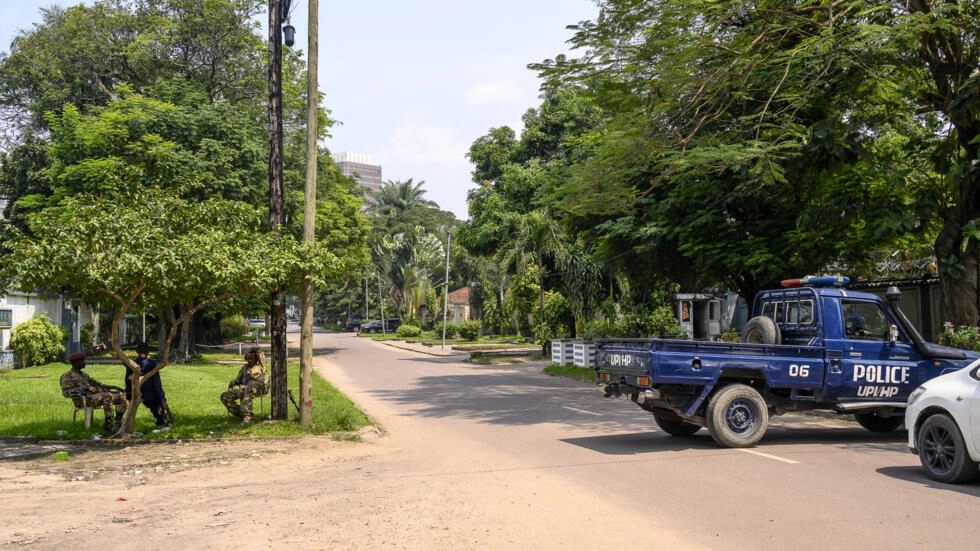Gambiaj.com – (KINSHASA) – On May 20, 2024, Moussa Faki Mahamat, President of the African Union (AU) Commission, strongly condemned the “attempted coup d’état” in the Democratic Republic of Congo (DRC). The Congolese army announced they had thwarted the coup attempt, which unfolded in the capital, Kinshasa, on May 19. Despite this, many questions remain unanswered about the incident.
One major question is whether President Félix Tshisekedi was directly targeted. Tshisekedi resides at the City of the African Union, not the Palais de la Nation, where the attackers struck. The head of state’s office suggests the attackers may have been expecting reinforcements, with some prepositioned in the swamps along the Congo River, though any links to other groups remain unclear.
This incident follows the arrest of several army and police officers for treason, announced a month ago by Army General Christian Tshiwewe Songesha during a military parade. Whether this is connected to the recent events is still uncertain. Additionally, the army claims that Deputy Prime Minister Jean-Pierre Bemba and Prime Minister Judith Suminwa were also targets.
Analysts question how the attackers hoped to succeed in a coup by targeting these three high-profile individuals first, considering the time needed to execute such a plan. There are also concerns about the security at the Palais de la Nation: how did the attackers breach the courtyard without encountering resistance from the Republican Guard, especially after gunfire at Vital Kamerhe’s residence should have raised alarms?
In the aftermath, control at the national television headquarters has been reinforced, and the Palais de la Nation is now off-limits to regular workers. Four attackers were killed, and forty were captured. Among the deceased was Christian Malanga, a former Congolese army captain and US resident who led the insurgent group.
Malanga, who was born in Kinshasa in 1983, fled with his family to Swaziland and later to the United States. He returned to the DRC for military service and rose to the rank of captain by 2010. He entered politics, advocating for the return of the DRC’s name to “Zaire” from the Mobutu Sese Seko era. In 2013, he founded the United Congolese Party and established a government-in-exile in Brussels. On May 19, Malanga and his fighters stormed the Palais de la Nation, posted videos of themselves burning the DRC flag, and called for President Tshisekedi’s ouster.
Authorities are taking the events seriously, with intensified investigations and increased security measures. Peter Kazadi, Deputy Prime Minister in charge of the Interior and Security, confirmed that no citywide closure is planned, and the public can continue their daily activities.
Vital Kamerhe, whose residence was attacked, remains at his home on Avenue Roi Baudoin. His team suspects the attack could be linked to political adversaries unhappy with his alliance with President Tshisekedi. Kamerhe’s supporters believe the alliance remains strong, as evidenced by the rapid response from security forces and subsequent meetings.
The investigation continues as authorities seek to uncover possible accomplices and the full extent of the plot, while the nation grapples with the implications of this brazen attempt to destabilize its leadership.










